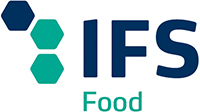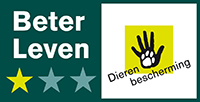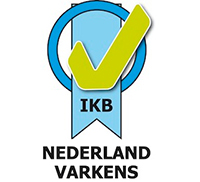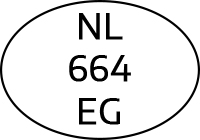Our processes are geared towards producing the best quality imaginable, that's why we take care to safeguard this quality at all times. We adhere to national and international quality standards, from the first to the last step. Our raw materials are closely inspected as soon as they enter our location, at Christ Lommers every stage of production is under tight control.
Certificates

IFS Food is an internationally recognised standard for food products and food manufacturers drawn up by the GFSI (Global Food Safety Initiative). The focus of the IFS scheme lies on food safety and quality assurance for both the production processes and the products themselves.

The Beter Leven animal welfare label certifies minimum standards of well-being for the raised pigs. These standards relate to the dimensions of the pigs’ enclosures and individual animals’ room to move around. In addition, the label prohibits castration and regulates shorter and more effective transport runs.

The IKB (Integraal Keten Beheer) certification mark is an initiative of the meat industry. It was set up to promote a trace supply chain for meat products. The consumer can refer to IKB data to establish where the meat was processed, which facility the pig was slaughtered at and even which farm the animal came from. The IKB logo represents high-quality meat, improved animal welfare when it comes to aspects like transport and greater food safety thanks to strict hygiene requirements during production. The IKB logo may be found on the packaging together with certification marks like EKO, Scharrel or Beter Leven.

QS stands for ‘Qualitätssicherung’ and can be seen as a German version of the IKB mark

The European Community regulation mark is a code that is affixed to food products of animal origin. This regulation mark has been made compulsory by the European Union for food safety reasons. The EC code specifies which company manufactured the product and which EU supervision it is subject to in terms of its hygiene policy.
Christ Lommers’ EC regulation code is NL 664 EG

Consumers can scan the QR code provided by fTRACE to determine the precise origins of a specific food product and trace the route it took during its various production stages. The provided information includes details on where the product comes from, when and how it was processed and the manufacturer’s quality assurance programme.





